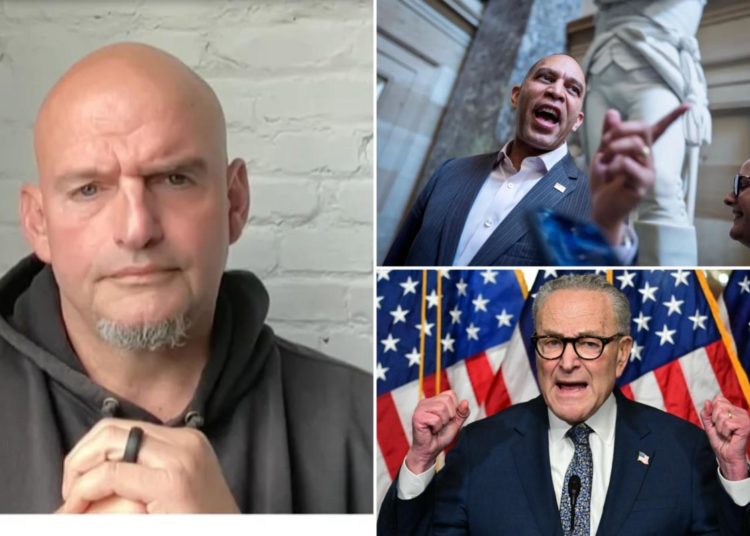Writing for the majority in last year’s presidential immunity case, Chief Justice John Roberts said that granting sweeping immunity was necessary to avoid an executive branch that “cannibalizes” itself. Without it, he argued, a president would be left “free to prosecute his predecessors, yet unable to boldly and fearlessly carry out his duties for fear that he may be next.” The majority extended absolute immunity to a president who orders the Department of Justice to conduct “sham” investigations.
In the year since, rather than preventing the weaponization of prosecutions, the court has unleashed it.
Mr. Trump’s direction of the prosecutions of his perceived enemies — notably James Comey, the former F.B.I. director, and Letitia James, the New York attorney general — has illustrated the folly of Chief Justice Roberts’s rationale. Between the court’s dissolving potential liability for bogus fraud investigations and Mr. Trump’s neutering of executive branch rules governing the independence of the Justice Department, the court has seemingly left the president free to target anyone he wishes.
We both worked for the Justice Department for many years, serving under presidents of both parties, including Mr. Trump. During that time, there were internal rules limiting the White House from communicating with department prosecutors about whom to investigate and prosecute criminally. Recall the 2016 episode when Loretta Lynch, who was overseeing an investigation of Hillary Clinton’s use of a private email account and server, bumped into Bill Clinton on an airport tarmac. It caused a hue and cry by raising the mere specter of a former president having an audience with the attorney general about a pending case.
Compare that kerfuffle to now. Mr. Trump has openly called for the prosecution of his perceived enemies and forced out his own appointed prosecutor for standing in the way. The Supreme Court’s immunity decision enabled this boldness on two fronts. It perversely helped to legitimize the idea, embraced by Mr. Trump, that as president he can do pretty much anything he wants — even try to overturn the results of a free and fair election. It also signaled that the president need not fear criminal liability for charging a political enemy with a crime, even where the facts and law do not support it, in violation of that person’s constitutional rights.
In Trump v. United States, Mr. Trump claimed immunity from the criminal charges instituted by the grand jury in the Jan. 6-related prosecution. The court outlined a three-part test: For actions that were within the president’s “exclusive” prerogative under the Constitution, he is entirely immune; for those taken in his personal capacity, he is not. And for those actions that are official but not exclusively within the province of the executive branch, at least presumptive immunity applies (with an onerous test for rebutting that presumption). Thus, Mr. Trump could not be held criminally accountable for trying to leverage the Justice Department to bolster his baseless Jan. 6 claims because the court’s majority determined that conduct to be within the first category affording absolute immunity.
Mr. Trump’s use of the Justice Department against his opponents is a logical result of the court’s extremely broad interpretation of the president’s exclusive constitutional powers. The court could have defined these narrowly, in keeping with the powers expressly given the president by the Constitution’s text, such as the pardon power and the veto power. But the court went beyond the text. It concluded that because “the executive branch has ‘exclusive authority and absolute discretion’ to decide which crimes to investigate and prosecute,” the president as the head of that branch must be criminally immune from requesting investigations even when those investigations are “shams” or “proposed for an improper purpose.”
Its ruling flies in the face of both an originalist interpretation of the Constitution and separation-of-powers principles. Although she signed on, in part, to the majority opinion, Justice Amy Coney Barrett wrote separately to voice her view that, “Properly conceived, the president’s constitutional protection from prosecution is narrow,” and the Constitution “does not vest every exercise of executive power in the president’s sole discretion.” Congress has constitutional authority, too, including the authority to enact criminal laws that regulate the president’s conduct.
Indeed, respect for the separation of powers underlay Justice Robert Jackson’s oft-cited concurring opinion in the 1952 case Youngstown Sheet & Tube Co. v. Sawyer — which Justice Barrett cited in her opinion. In Youngstown, concluding that President Harry Truman lacked the authority to seize steel mills to keep a labor dispute from stopping production, Justice Jackson observed that the Constitution “diffuses power the better to secure liberty.” Danger, he warned, lurks in an expansive interpretation of the executive’s exclusive domain, “for what is at stake is the equilibrium established by our constitutional system.”
Failing to heed this warning, today’s court determined that an astonishingly vast scope of immunity for all but purely unofficial acts was necessary to avoid “enfeebling” presidents in an endless “cycle of factional strife.” In doing so, the court brushed aside that for nearly all of our history, presidents have assumed themselves bound by criminal laws. And it augured the precise risk it sought to thwart by giving a dangerous tool to a president who clearly does not care about the evenhanded administration of justice.
Mr. Trump is manifestly uninterested in the separation of powers. He is similarly uninterested in the White House and Justice Department rules that prior administrations of both parties adopted and abided by in order to give the American people confidence that the department’s vast powers would not be used for political purposes. By granting presidents absolute immunity to order the attorney general to do essentially anything, the court seemingly would permit Mr. Trump to go further than he has already, and command even a groundless case against former President Joe Biden — precisely the tit-for-tat factionalism that the majority decried.
Whatever the result in the Comey and James cases, the Supreme Court has ensured that Mr. Trump has no fear of being held accountable for dictating investigations and grand jury proceedings that carry an odor of retribution. Even those who argue that Mr. Trump was himself the target of selective prosecution would have to concede that the court’s immunity rationale is proving wrong.
It is not too late for the court to mitigate the damage it has caused. If either of the Comey or James cases makes its way to the Supreme Court, the justices in the majority would have an opportunity to acknowledge the hollowness of their reasoning. They correctly identified the problem of an endless cycle of factional strife. Their remedy was a grave mistake.
Mary McCord is the executive director of the Institute for Constitutional Advocacy and Protection and a visiting professor at the Georgetown University Law Center. Andrew Weissmann is a professor of practice at the New York University School of Law and the author of “Where Law Ends: Inside the Mueller Investigation.” They are the co-hosts of the podcast “Main Justice.”
The Times is committed to publishing a diversity of letters to the editor. We’d like to hear what you think about this or any of our articles. Here are some tips. And here’s our email: [email protected].
Follow the New York Times Opinion section on Facebook, Instagram, TikTok, Bluesky, WhatsApp and Threads.
The post How the Supreme Court Paved the Way for Revenge Prosecutions appeared first on New York Times.




